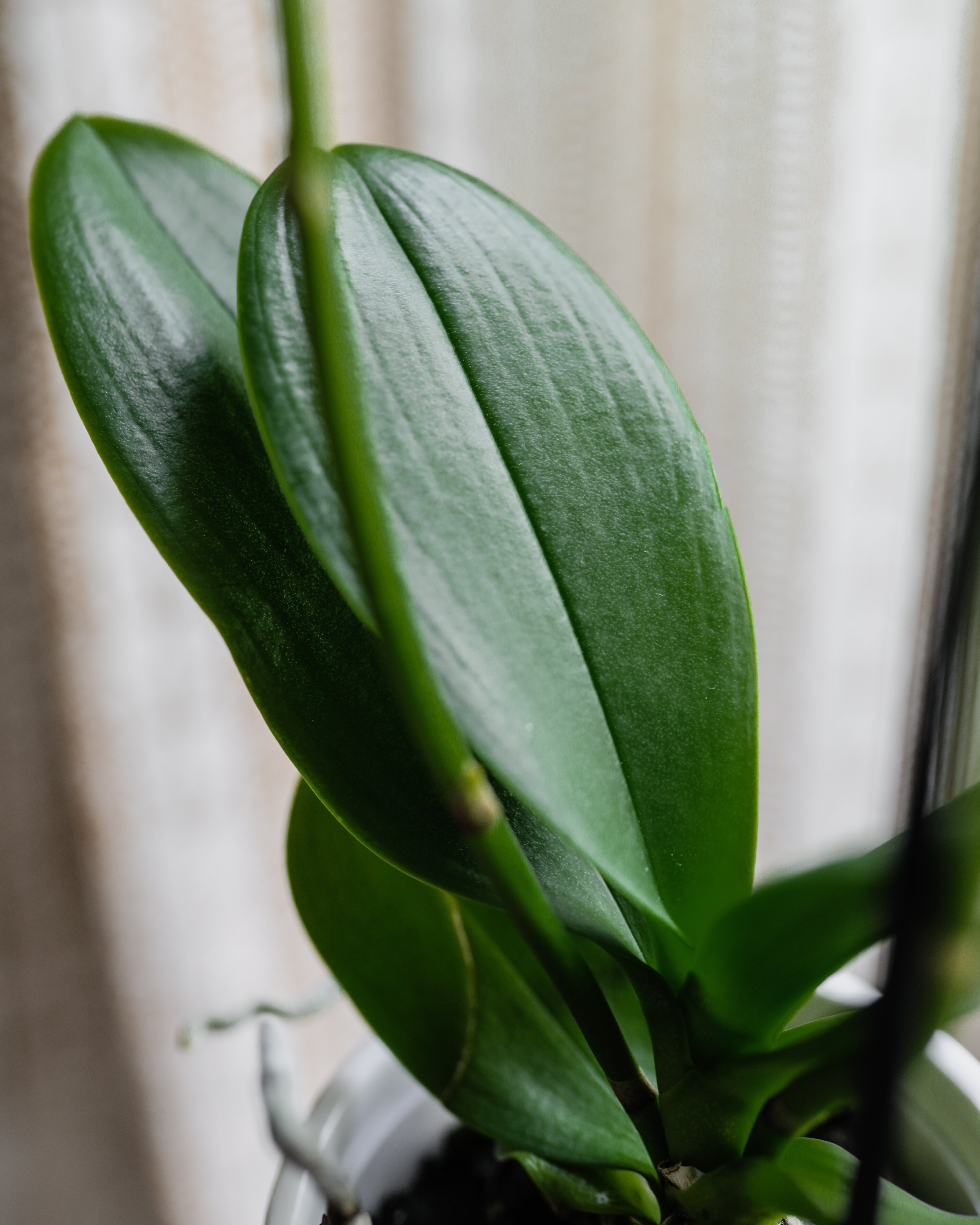Reading Your Orchid’s Leaves: Signs of a Healthy and Unhealthy Orchid
We know that our plants can often find ways to tell us what's wrong. The leaves of your orchid can give you a lot of clues to your plant’s overall health. Learning to recognize signs of orchid distress and understand the meaning behind the appearance of your plant’s leaves can help you spot potential problems and address them before they damage your orchid.
Here are some signs that you should look for when you are evaluating the health of your orchids:
Signs of a Healthy Orchid
- Orchid leaves are green, firm, and rubbery
- Leaves are uniformly green, and not discolored
- Leaves are strong, with some lift to them
- Aerial roots are silvery/white and have green shiny tips. Multiple air roots indicate that it is actively growing!
- Potting mix is barely moist, and not bone dry or soaking wet
Signs of Unhealthy Orchid Leaves
- Yellowing leaves: While it is normal for the bottom most leaf to turn yellow and fall off to allow room for a new leaf to grow, yellowing leaves could also mean your orchid is receiving too much light, has encountered low temperatures, or has started to develop root rot due to overwatering. Assess your orchid’s environment and check its roots. An orchid with root rot will have brown/mushy roots while healthy roots will be plump and green.
- Very dark green leaves: Your orchid is not getting enough light. Move it to a place where it receives plenty of bright, indirect sunlight.
- White leaves: Your orchid is receiving too much light. Move it to an area that does not sit in bright, direct sunlight.
- Limp, wrinkled, or torn leaves: This is a sign of dehydration. Increase your watering and inspect your orchid’s root system for signs of stress. Hydrated roots should be firm and green while dehydrated roots will be white, brown, or shriveled.
- Purple or reddish leaves: If the tops of orchid leaves turn reddish (reddish undersides are often normal), your orchid may be suffering from sunburn or a nitrogen or phosphorus deficiency. Move your orchid away from direct sunlight and apply fertilizer.
Orchids, like many other plants, will tell you a lot about themselves through their leaves. You just have to know what they’re trying to tell you! If you’re worried about your orchid’s health, send us a message on Instagram or Facebook @maxandmilesplants! We’d be happy to help troubleshoot what may be going on with your tropical beauty!








